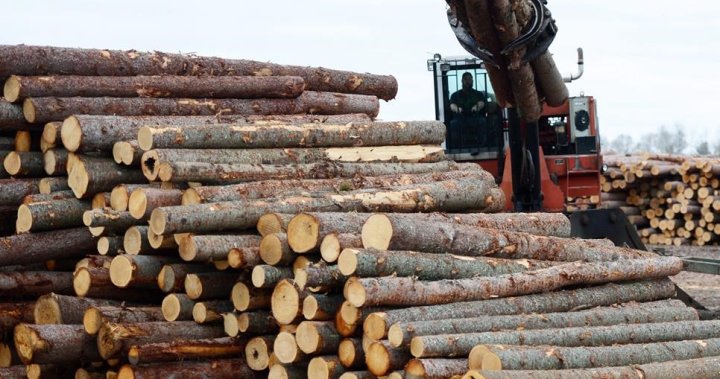Canada’s international trade minister, Mary Ng, has criticized the U.S. Department of Commerce for nearly doubling duties on softwood lumber from Canada, calling the move unfair and unwarranted. The U.S. increased duties on Canadian softwood lumber from 8.05% to 14.54%, causing concern for both Canadian consumers and producers. The ongoing dispute between the two countries has been described as a hindrance to efforts to improve the cost and supply of housing. The increase in duties has faced backlash from government and industry in British Columbia, with calls for an end to what is perceived as unfair tariffs.
The U.S. Department of Commerce determines the duties on softwood lumber under the Tariff Act, based on whether goods are being sold at less than fair value or benefitting from foreign government subsidies. Canadian lumber-producing provinces set stumpage fees for timber harvested from Crown land, which U.S. producers argue amounts to an unfair subsidy as they are forced to pay market rates. This discrepancy has been a point of contention in the ongoing dispute between the two countries over softwood lumber trade.
Canadian lumber producers have already paid more than $9 billion in duties, which are being held in deposit until the resolution of the dispute. The increase in U.S. tariffs on B.C. lumber products has been criticized by industry groups, who say it will worsen already challenging conditions for producers, impacting manufacturing operations, jobs, and communities. The dispute is seen as unfairly targeting small, family-owned companies who are not directly involved in the larger trade disagreement between American landowners and international lumber corporations.
Canada is pursuing a litigation route to challenge the rates through a Canada-U.S.-Mexico agreement dispute panel. Previous successes at World Trade Organization dispute panels have shown that Canada’s stumpage-fee system is not considered a subsidy. However, the recent administrative review by the U.S. Commerce Department resulted in a higher duty rate for Canadian softwood lumber. The increase was met with approval by industry groups in the U.S., who believe that Canadian lumber imports are unfairly traded and are affecting the market for home construction.
The dispute over softwood lumber duties is not seen as a major cause of job losses in the Canadian lumber industry, according to a CIBC analyst note. Job losses are more closely linked to factors such as less robust lumber demand and constraints on B.C. fibre supply. Both Canada and the U.S. are encouraged to find a lasting resolution to the softwood lumber dispute for the benefit of both countries. Minister Ng emphasized the importance of defending Canadian workers, businesses, and communities that rely on the softwood lumber industry for their livelihoods.
In conclusion, the ongoing dispute over softwood lumber duties between Canada and the U.S. continues to be a source of tension, with recent increases in tariffs causing concern for Canadian producers and consumers. The disagreement revolves around differing perspectives on subsidies and fair pricing practices, leading to retaliatory measures from both sides. Despite past successes in challenging duties through international trade panels, the latest administrative review has resulted in higher duty rates for Canadian softwood lumber. Both countries are urged to work towards a lasting resolution for the benefit of all those involved in the industry.













